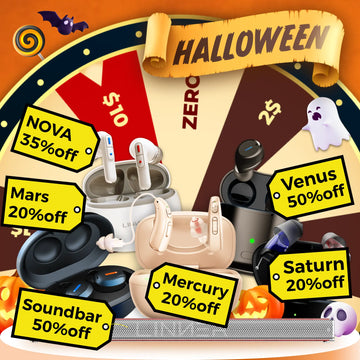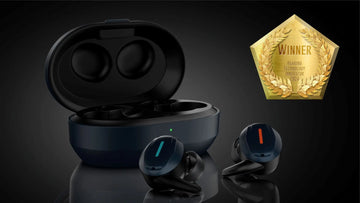
Hearing loss, despite being a common health concern, is surrounded by a myriad of misconceptions. Misunderstanding the causes, implications, and treatments can not only perpetuate stigmas but also hinder individuals from seeking timely and effective solutions. In this article, we debunk the top five myths about hearing loss, shedding light on this often-misunderstood condition.
Myth 1: Only the Elderly Experience Hearing Loss
While age-related hearing loss, known as presbycusis, is prevalent, hearing loss isn't exclusive to the elderly. It can occur at any age. Causes range from prolonged exposure to loud noises, genetics, certain illnesses, medications, and even injuries. In fact, a significant number of people in their twenties and thirties report some degree of hearing loss.
Myth 2: Hearing Aids Will Restore Hearing Completely
Hearing aids, like the innovative LINNER Deluxe, are designed to amplify sound and improve hearing capability. They significantly enhance the user's auditory experience but don't "cure" hearing loss or restore hearing to its natural state. They can, however, make a world of difference in communication and overall quality of life.
Myth 3: If I Had Hearing Loss, I'd Know
Hearing loss can be a gradual process, with the decline happening over several years. Due to its incremental nature, many don't recognize it until it affects their daily life significantly. Regular hearing check-ups are essential to detect and address any hearing concerns early.
Myth 4: Hearing Loss Only Affects My Ears
While the immediate consequence of hearing loss is reduced auditory capability, its implications are vast. It can lead to social isolation, depression, cognitive decline, and even increased risk of falls in older adults. Early intervention and tools like hearing aids can mitigate these risks and improve overall well-being.
Myth 5: Louder is Better for People with Hearing Loss
Merely turning up the volume isn't always an effective solution. Loudness doesn't equate to clarity. In many cases, background noises get amplified along with speech, making it even more challenging to discern conversations. Modern hearing aids focus on clarity, filtering out background noises and enhancing speech.
Misconceptions about hearing loss can delay treatment, perpetuate stigmas, and reduce the quality of life for those affected. By understanding and dispelling these myths, we can encourage proactive measures, early interventions, and foster a more inclusive environment for everyone, irrespective of their hearing capabilities.





